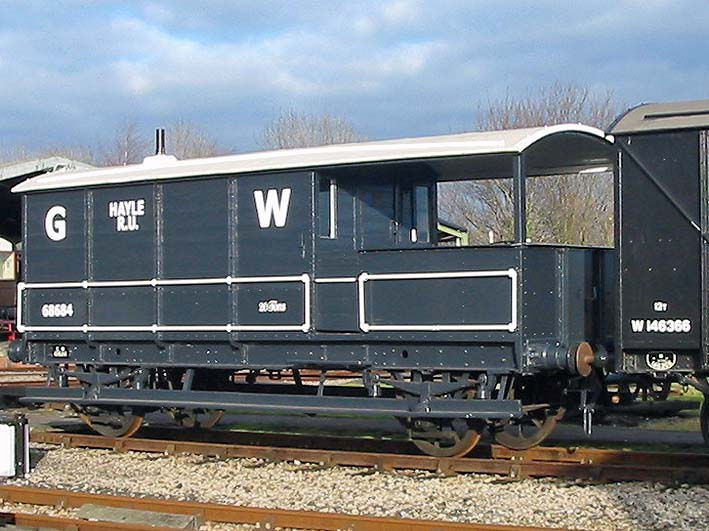Putting an Official Brake on History
- rodneypitt9
- Mar 12, 2021
- 2 min read

GWR Toad Brake Van No 68684 built in 1924 as a 20T Brake Van (Didcot Railway Centre)
According to a report in Rail News, a long-standing part of the railway is finally making its farewell bow.
Brake vans, which date back to the earliest days of railways, were needed because for many years the only other brakes on a train were on the locomotive, and drivers could ‘whistle for brakes’ to the guard in the brake van if the train had to stop as quickly as possible.
Continuous brakes, which were applied throughout a train by dropping the pressure in the vacuum pipe, were required by the Board of Trade for passenger trains from 1889, but ‘loose-coupled’ freight trains, in which there were no brakes on the individual wagons, remained commonplace until the 1960s.
Newer types of freight working from the 1950s onward included continuous brakes on the wagons, known as ‘fully fitted’ freight, and the last loose-coupled freight trains had run by 1990. But freight operating instructions had not been brought completely up to date to reflect this change – until now.
References to their required use in some circumstances has continued, including in the so-called ‘White Pages’. Until recently, these contained rules and instructions for staff undertaking safety-critical tasks in freight train operation. The White Pages have now been withdrawn and the instructions moved into the main Rule Book. The RSSB said the move was also an opportunity to ‘tweak some points and remove requirements which were no longer relevant’ to reflect modern-day operations, which include freight trains as long as 775m.
The RSSB’s director of standards Tom Lee said: ‘Ensuring freight operators have the most up-to-date standards and guidance will enable them to continue to play their critical role in supporting and fuelling the UK economy, and supply goods to businesses and communities nationwide, both efficiently and safely. I’m sure there are many who will remember brake vans both fondly and disdainfully, but their time in the Rule Book has pretty much come to an end, and freight operators can now benefit from enhanced operating instructions that better reflect modern practice.’



Comments